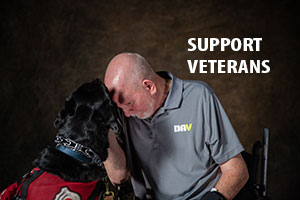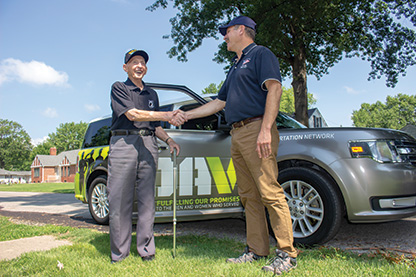Protecting Veterans Against Scams
Understanding scams targeting veterans
Veteran scams have become alarmingly common in recent years, posing a serious threat to the well-being and financial security of those who have served our nation.
Understanding the importance of protecting veterans against scams is crucial to safeguarding their interests and ensuring they receive the support they deserve.
This article explores why protecting veterans against scams is vital, highlights common veteran scams, explains how to recognize and avoid military scams, and provides resources.
Impacts of military scamming
Military scammers often target veterans because of their potential access to government resources. These scams can take various forms, including identity theft, fake charity schemes and investment fraud.
The financial impact of military scams on veterans cannot be overstated. Many veterans rely on their retirement savings, pensions and disability benefits to support themselves and their families. Falling victim to a scam can result in significant financial loss, jeopardizing their ability to meet basic needs and maintain a comfortable lifestyle. This loss can be particularly devastating for veterans who may already face challenges such as medical expenses or job instability.
Common scams aimed at veterans
It is crucial for veterans, military members and their families to stay vigilant against scams that specifically target our community. Military scammers are constantly finding new and creative ways to take advantage of unsuspecting individuals. Here are some of the most prevalent scams targeting veterans:
Predatory claims companies: Scammers may unlawfully charge veterans to “help” process their initial claims with the Department of Veterans Affairs, promising expedited claims processing times or higher disability ratings.
Education benefit scams: Fraudulent institutions may offer degrees or certificates that require little to no coursework and lack proper accreditation, causing veterans to waste their GI Bill benefits.
Employment scams: Job scams are fake job opportunities that are used to lure job seekers into giving away sensitive information or even money.
Fake government grants and programs: Scammers may offer fake government grants or programs specifically targeted at veterans to gain personal information.
Housing scams: Scammers may solicit veterans with offers to refinance their VA loans, often with hidden fees or bait-and-switch tactics.
Identity theft: Scammers may obtain your personal identifiable information (PII) and use it to access or control your accounts, including VA benefits payments.
Pension poaching: Criminals defraud older veterans, survivors and their families through tactics like sweepstakes, contests, charities, health products and in-home health care services, home improvements and equity skimming and banking or wire transfer fraud.
Phishing: Scammers may pretend to be representatives of a trusted organization or government agency to trick veterans into sharing personal information or paying bogus fees.
Posing as family or friends: Scammers may exploit veterans by pretending to be family members or close friends in need of financial assistance.
Romance scams: Scammers target veterans through dating or social media apps to build trust before requesting money or sensitive personal information.
Staying informed and sharing this knowledge with fellow veterans, we can collectively combat these scams and protect ourselves and our community.
See recently identified scams targeting veterans
Tips to prevent veteran scams
Military scammers often target veterans because of their access to benefits. Knowing the warning signs and how to verify the legitimacy of an organization or offer will help veterans protect themselves against scams. Some common red flags include:
- Unsolicited phone calls or emails
- Requests for personal or financial information
- High-pressure sales tactics
- Promises of guaranteed benefits or winnings
- Asking for your VA.gov/ID.me username or password
Remember, if something sounds too good to be true, it probably is. And never give out your VA.gov/ID.me username or password.
When dealing with organizations or individuals, it is crucial to verify their legitimacy. Before providing any personal information or engaging in financial transactions, research the organization or person thoroughly.
Check for official websites, read reviews or testimonials, and look for accreditations or certifications.
Reporting veteran fraud
If you suspect you’ve been targeted by a scam, take immediate action to protect yourself. Report the incident to the proper authorities, such as the Federal Trade Commission (FTC) or the Internet Crime Complaint Center (IC3). Provide any evidence you have, including emails, documents or recorded phone conversations.
See the VA’s Reporting Fraud Fact Sheet
Support and resources for veterans
When it comes to military fraud, empowering veterans with knowledge and resources is the strongest defense. These resources offer valuable insights, information and assistance to veterans seeking protection against military scammers:
Military Consumer provides information to help the military community with financial readiness.
VSAFE.gov helps the military community stay informed and find resources on the frauds that target them.
The VA Accreditation Search offers a searchable list of accredited attorneys, claims agents and veteran service organization representatives.
The FTC offers a webinar and other information about military consumer fraud.








